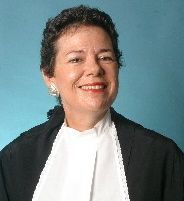
It’s time for Australia to grow…by one State! So says Jane Aagaard, Speaker of the NT Parliament. She argues – as CLA does also – that Territorians should have the same rights as other Australians, and that the federal parliament should not be able to overturn the will of the democratically-elected local people.
Second-class Territory is no fit state
By Jane Aagaard*
I moved to the Northern Territory from Brisbane 26 years ago. I come from a family that traces its ancestors* to 1805, when as free settlers they moved and settled in western Victoria and Tasmania.
I am very proud of my Australian heritage and especially of being a Territorian. The Territory is a place of real character where the front page of our daily newspaper regularly features crocodiles, UFOs and strange happenings. While bizarre, it somehow fits in with the wonderful lifestyle and cosmopolitan place we have in the Northern Territory. It is still a place where people can “have a go” and frequently succeed.
Yet, what I didn’t know when I crossed the border into the Territory in 1985 was that I lost some of my rights as an Australian citizen. I, like many people, was in a state of ignorance about the Territory’s inferior constitutional status until it came time to vote at a referendum.
In November 1999, when I voted at the referendum asking whether Australia should become a republic, it came home to me that Territorians’ votes are not equal to those of their fellow citizens living in the existing states.
We are counted only in the mass of all Australian electors, whereas for a referendum to pass to change the Australian constitution it requires a majority of electors to agree as well as the majority of states to vote “yes”.
Notwithstanding that a majority of electors in the Northern Territory did vote “yes” at the time, the majority of states did not and we remain a constitutional monarchy.
The Commonwealth government has committed to holding a referendum on recognition of Aboriginal people in the Australian constitution.
This will be significant for us in the Northern Territory because more than 30 per cent of our population is made up of Aboriginal Australians.
Yet when they and all other Territory electors are asked to vote on this important question, so long as we are not a state, once again our vote will not have the same weight as that of an elector who is resident in a state.
Similarly, any of our laws can be overturned within six months of assent by our Administrator by a Commonwealth government minister in Canberra or at any time after the six months by the Commonwealth Parliament. This has happened in relation to laws relating to euthanasia and radioactive waste disposal. Not withstanding the controversy surrounding each of these issues, surely Territorians have a right to have the laws passed by their parliaments respected in the same way that states’ laws are respected. We are all elected in the same way.
This year is 100 years since the government of South Australia handed the Northern Territory to the Commonwealth. Before that, the Territory was part of South Australia after being separated from New South Wales in 1863.
During 2011, the people of the Northern Territory will be talking more about growing up and leaving home.
Last year we held 50 public forums to publicise our program — NT 2011 Towards State 7 — and this year, 100 years on, we take a crucial next step.
After being passed around between NSW, SA and the Commonwealth, it’s time to grow up and for the Territory to take a place at the table of the federation of Australian states and be a partner in our democratic and well regarded system of government.
Last week, in my role as the chairman of the Northern Territory Standing Committee on Legal and Constitutional Affairs, I led a small cross-party delegation of Territory Assembly members to Canberra to brief Commonwealth parliamentarians of all political persuasions about our hopes and plans for the Territory to achieve statehood.
Since 2005, the committee has been working closely with a community-based group to consult closely and deliver information and education on what statehood means. The Statehood Steering Committee wound up in December and their final report will be tabled in the Territory Assembly this month.
That report recommends the holding of a constitutional convention in November to be made up of elected delegates supported by nominated panellists of business, community, Aboriginal and other leaders and representatives coming together to start thinking about the content of and drafting a new state constitution.
The Legal and Constitutional Affairs Committee has supported this recommendation to government and we are now planning the process for the election of the delegates later in the year and the convention itself.
That convention will consider the case for statehood and produce a draft constitution document, which will then be sent around the Territory asking for comment and input before the convention reconvenes in 2013 to ratify a final model and considers whether to make a recommendation to hold a referendum asking Territorians to support statehood.
I think 100 years is long enough to be a second-class citizen. Many Territorians think it is time to move to recognition as the seventh state.
ENDS
Jane Aagaard MLA is Speaker of the Northern Territory Legislative Assembly and chairwoman of the NT Legal and Constitutional Affairs Committee.
This story first appeared at: http://www.smh.com.au/opinion/politics/secondclass-territory-is-no-fit-state-20110214-1atd0.html
* Descendants was changed to ancestors by the CLA editor

